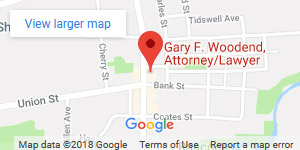MEDICAID TRUSTS
and why I don’t like them
We get many calls asking us to protect their assets from “the government” in case they need long-term, nursing home care. This is certainly understandable, but as a rule, we don’t like them.
Why don’t we like them? Primarily because clients don’t understand what they are asking us to do. Medicaid is essentially government paid health care for indigent people. You don’t have to be old to be on Medicaid. You just have to be poor. Medicaid and Medicare are not the same thing.
How poor do you have to be to qualify for Medicaid? In New Jersey, you cannot have assets in excess of $2,500, and that is pretty poor. There are exceptions for a home in which your spouse or a related caretaker resides, but $2,500 is a good rule of thumb.
The purpose of a Medicaid trust is to divest yourself of all but $2,500 of your assets by putting your assets in an irrevocable trust. Irrevocable means permanently. If you do so, you will then be poor enough to qualify for Medicaid, provided you stay out of a nursing home for five years. If you don’t, then Medicaid will calculate your penalty, and most likely you will not be Medicaid qualified for several years.
But that is not why I personally do not like this type of manipulative planning. There are basically three reasons, in no particular order:
Reason 1: If you qualify for Medicaid, someone has to pay for your long-term health care if you are not going to pay for it. That “someone” is the taxpayer. In other words, you and me. I don’t think it is particularly ethical for someone who is financially stable to give away all of their assets so they can leave their accumulated wealth to their children, and let the rest of us pay for their healthcare. If someone is truly indigent, and needs government assistance, I am all for that. Medicaid is a safety net, and it makes sure that those that need government assistance get proper healthcare. It is the humane thing to do.
Reason 2: There is a myth that all nursing homes are the same. That has not been my experience. Unfortunately, I get appointed pro bono by the court fairly frequently to represent people who are indigent and end up in a nursing home. Since they are indigent, they qualify for Medicaid. I’m fine with that. However, I can assure you that you get what you pay for. Medicaid patients end up in facilities that I would never want anyone I cared about to have to live. If you think I am exaggerating, take a Saturday and go visit a few. You will be equally appalled.
Reason 3: I have worked since I was 14 years old, worked through high school, college, graduate business school, as well as law school. Since law school, I have consistently worked 50-60 hours a week. Plus, I have been frugal my entire life and not lived lavishly, choosing instead to make sure I have sufficient savings in case it is needed someday. I did not work hard my entire life, and lived modestly so I could leave my hard earned money to my children. They can take care of themselves. And, I certainly did not work hard and live modestly my entire life so that I could intentionally impoverish myself in my old age and end up on public assistance, living in a grungy nursing home, with a delirious roommate with a flimsy curtain between our beds, and a blaring TV, with nurses tramping through at all hours of the day and night. Nope. That is not for me. I have worked all these years and scrimped and saved so I could live comfortably in my old age, and not have to go on Medicaid.




